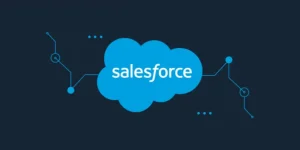Salesforce is a cloud-based customer relationship management (CRM) software that has become increasingly popular among businesses. With its user-friendly interface and flexible features, Salesforce can help businesses streamline their sales processes, enhance customer engagement, and ultimately boost revenue. However, implementing Salesforce can be a complex process that requires careful planning and execution. In this blog post, we will guide you through the steps you should take to implement Salesforce for your business. Join Salesforce Training in Chennai at FITA Academy provides comprehensive training programs to help you master the platform and advance your career in the field.
1. Define Your Objectives
Before you begin implementing Salesforce, you need to define your objectives. What do you want to achieve with this software? Are you looking to improve your sales processes, enhance customer engagement, or increase revenue? Once you have a clear understanding of your objectives, you can tailor Salesforce to meet your specific needs.
2. Choose the Right Edition
Salesforce offers different editions to cater to the diverse needs of businesses. The edition you choose will depend on your budget, business size, and requirements. For instance, if you’re a small business with limited resources, you may choose the Essentials edition, which offers basic CRM functionality at an affordable price. On the other hand, if you’re a large enterprise with complex needs, you may opt for the Unlimited edition, which offers advanced customization and integration capabilities.
3. Customize Your Salesforce Instance
Once you’ve chosen the right edition, it’s time to customize your Salesforce instance. This involves configuring the software to meet your specific business needs. Salesforce offers a range of customization options, such as creating custom fields, designing custom page layouts, and setting up custom workflows. Customization can be done by in-house IT personnel or by a Salesforce partner.
4. Migrate Your Data
If you’re migrating from another CRM system, you’ll need to transfer your data to Salesforce. This can be a time-consuming and complex process, especially if you have a large amount of data. Salesforce offers various tools to help you migrate your data, such as the Data Loader and the Salesforce Import Wizard. Alternatively, you can hire a Salesforce partner to handle the data migration for you. By the way, if you are interested in learning Salesforce development, you can check out various Salesforce Developer Training programs available online.
5. Train Your Users
Once you’ve customized Salesforce and migrated your data, it’s time to train your users. Salesforce is a complex software, and your users need to be trained on how to use it effectively. Salesforce offers a range of training resources, such as online tutorials, webinars, and certification programs. Alternatively, you can hire a Salesforce partner to provide customized training to your users.
6. Integrate with Other Systems
Salesforce is designed to integrate with a range of other systems, such as marketing automation software, accounting software, and e-commerce platforms. Integrating Salesforce with other systems can help you streamline your business processes and improve efficiency. Salesforce offers various integration options, such as native integrations, third-party integrations, and custom integrations.
7. Monitor and Improve
Once you’ve implemented Salesforce, it’s important to monitor its performance and continually improve it. Salesforce offers various analytics and reporting tools to help you track your performance metrics and identify areas for improvement. You can also use Salesforce’s AppExchange marketplace to find and install third-party applications that can enhance your Salesforce functionality.
Implementing Salesforce for your business can be a complex process, but it’s worth the effort. By defining your objectives, choosing the right edition, customizing your Salesforce instance, migrating your data, training your users, integrating with other systems, and monitoring and improving your performance, you can leverage this powerful software to boost your sales processes, enhance customer engagement, and ultimately increase revenue. If you need help with Salesforce implementation, consider hiring a Salesforce partner or Training Institute in Chennai who can guide you through the process and ensure a successful outcome.
Also Read: Salesforce Interview Questions and Answers

